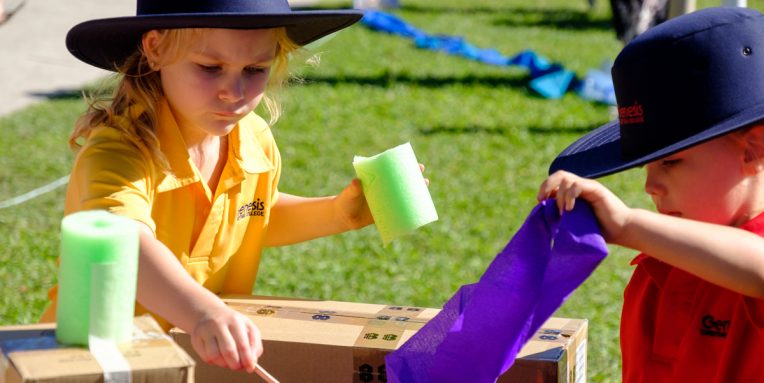Primary News & Highlights

“Learning at Genesis involves students and staff working hard. It is rigorous, and we hold ourselves accountable for the quality of work produced. Instructional time is explicit with our learning goals well-established. We have a distinct focus on high quality literacy and numeracy skills as the prime indicators of a student’s later academic success in school; whilst concurrently embedding a future-skills curriculum into our learning design. These future-skills include student agency (choice and voice), collaboration and teamwork, creativity, inquiry, flearning (learning through failure), flexibility, and authenticity (real-world products and audience). Future-skills apply to staff and students alike. Staff value the ability to collaboratively plan and create together.”
As part of unpacking our vision for Primary School Pedagogy, the statement above addresses the fundamentals of excellent teaching and learning in a primary school – that being explicit instruction in Literacy and Numeracy, but also this interesting new concept of “future skills”.
So what are future skills?
These are the things which education researchers are saying are the life skills our children are going to need into the future, to equip them for the workforce of tomorrow; a future which we cannot yet predict will look like. However, if our children have these “future skills” as part of their own competencies, they will handle such a future so much better. Future skills are not the “content curriculum” or all the stuff you and I had to memorise at school. Future skills are more so the soft skills, and character traits that every person needs to get along with people, and collaborate.
The concept of “flearning” is one of these future skills. “Flearning” (or learning through failure), is the ability to bounce back from not being successful, think of alternative ways of solving problems, and in modern well-being terms is the “resilience” children need to persevere through tough times.
When famous basketballer, Michael Jordan says, “I’ve missed more than 9,000 shots in my career. I’ve lost almost 300 games. 26 times, I’ve been trusted to take the game winning shot and missed. I’ve failed over and over and over again in my life. And that is why I succeed.” it makes me think, “what if Michael Jordan had quit after failing once, and never became famous?” The world would have really missed out!
In terms of our children and building resilience, at Genesis we have been focusing on “praising the process of learning and trying” rather than “praising the result”. The former of these two builds more resilient and future ready children.
Jeremy Williamson
Head of School (Primary)






